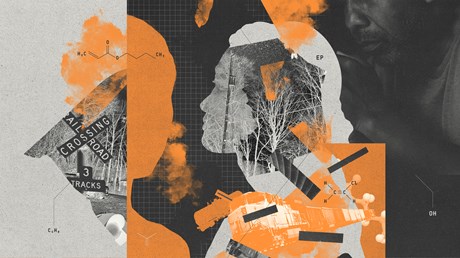After a major chemical spill in Ohio, disagreement tore close-knit East Palestine apart. Local churches are working to heal the ravages of mistrust.

In East Palestine, Ohio, days after last year’s train crash and subsequent burning of more than 100,000 gallons of toxic chemicals, 14-year-old Jameson Kenneally noticed that his family’s chickens were producing wrinkled eggs. They live three miles from where the chemicals ignited. His mom, Jamie Kenneally, explained to him that the eggs could be wrinkled for a variety of reasons. Maybe it wasn’t the chemicals. After all, their chickens had been through a stressful experience.
On February 3, 2023, a Norfolk Southern train derailed just outside of town, near the Pennsylvania border. Twenty cars carrying hazardous chemicals—vinyl chloride (the most alarming), ethylene glycol, ethylhexyl acrylate, butyl acrylate, and isobutylene—caught fire and spilled into a nearby stream. The chemicals were heading from Texas to a plastics factory in New Jersey, according to The New York Times, a journey of around 1,600 miles. That meant what happened in East Palestine could have happened anywhere.
After the chemical fire burned for three days, local officials decided to drain and detonate the remaining substances in a “controlled release” to prevent a larger explosion. A flurry of police went door to door in the town of 5,000, telling people to leave, and the Kenneally family evacuated.
At first they slept in the youth room of Bethel Evangelical Presbyterian Church in nearby Enon Valley, Pennsylvania, where Jamie’s husband, Steve Kenneally, is a pastor. Eventually, they retrieved their chickens and relocated with them to a friend’s house, after police announced that it might be days before they could return home.
The burn-off created a chemical cloud that was visible for miles—an indelible ...
from Christianity Today Magazine
Umn ministry




.gif)

.gif)
.gif)
